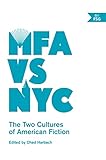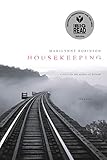By the end of my first semester of a PhD in history, I was sure I was going to drop out. I felt out of place, as if I were a student who, for weeks, sat in on the wrong class and decided to play along, the inertia of a decision keeping me from finding the right place. I was—and am—a fiction writer with a deep and abiding interest in history, but I wasn’t sure if that was enough to keep me in a PhD program.
 I began graduate school as a writer. It was 2011 and I had published my first essay in The Awl and had written 50 pages of a novel. When I think about my decision to start a PhD in history, I’m reminded of the essays in MFA vs NYC. It turns out that PhD in NYC was a third option. It’s not a common path, but not unheard of either. Prior to publishing Open City, Teju Cole was in the art history program at my university.
I began graduate school as a writer. It was 2011 and I had published my first essay in The Awl and had written 50 pages of a novel. When I think about my decision to start a PhD in history, I’m reminded of the essays in MFA vs NYC. It turns out that PhD in NYC was a third option. It’s not a common path, but not unheard of either. Prior to publishing Open City, Teju Cole was in the art history program at my university.
Why did I choose to enter graduate school in history? I’m still not sure. It was a fully-funded program, which meant that I was paid to spend my time in beautiful libraries and to travel for research. I suppose those reasons were as good as any.
 Truthfully, a PhD can be a wonderful place for writing a novel. Marilynne Robinson found pieces of what would become Housekeeping while in graduate school at the University of Washington. She later wrote that lonesomeness is at the heart of creation: it focuses the mind and provides needed silence. I can now see that my training as a historian gave me the space to write what history could never mention. My lonesome moments spent in libraries and archives gave me a chance to find the quiet lives of the everyday.
Truthfully, a PhD can be a wonderful place for writing a novel. Marilynne Robinson found pieces of what would become Housekeeping while in graduate school at the University of Washington. She later wrote that lonesomeness is at the heart of creation: it focuses the mind and provides needed silence. I can now see that my training as a historian gave me the space to write what history could never mention. My lonesome moments spent in libraries and archives gave me a chance to find the quiet lives of the everyday.
Nevertheless, it felt daunting to balance graduate school with a novel. Rather than balance both, I thought it might be easier to flee one for the other. In such a state, I sent cold emails to a few writers who had entered PhD programs and asked them whether I should stay or go. The best advice was given to me by Siddhartha Deb. He told me that a PhD offered the chance to “read things no one else is reading, writing that will be far more interesting than what you could read on your own.”
He was right. My graduate work took me from Fiji to Trinidad, where I read about the lives and stories of indentured Indians, those whose restless toil took them across dark waters to new lives of promise and unimaginable despair. It was in this experience of traveling alone, of spending long hours in silence, where my writing began to gain focus. I threw out the first hundred pages of the novel that I started before I entered my PhD program. I read and traveled some more and I threw out another 225 pages of a second novel. Beyond access to manuscripts and archives, graduate school had given me a gift: the time to write (and revise).
Some find this baffling. How could a PhD in history provide time to write a novel? I, like most graduate students, learned how to develop a Cistercian sensibility. Life was defined by work only I could schedule—reading, researching, and writing—and the prayers to get it all done. I took a little bit of that self-discipline and found that I usually had two or three hours to write in the morning (right after waking, when my thoughts, uninterrupted by distractions, were still protected by the hazy cocoon of sleep). It also helped that if I did not write, my mood was soured for the rest of the day.
Graduate school gave me the time to write, but it never told me how to write. Flannery O’Connor reminded me that fiction begins with what is experienced. As she put it, “The first and most obvious characteristic of fiction is that it deals with reality through what can be seen, heard, smelt, tasted, and touched.” It’s advice that should always be well-taken.
This exhortation to remain faithful to a visible world could have lead me to a worn conclusion: write what I knew. What one knows is filled with the kind of sensate memories that can, at times, make for good fiction. But for someone with a background in academic research, this idea was horrifying. If I were to write a history from what I knew, my works would be incredibly short and unimaginably boring.
For someone who had an abiding interest in the world, writing from what I knew was not an option. I needed a bit of faith; I needed to take a flying leap into the unknown world just beyond my vision.
What I needed was more research.
Thankfully, graduate school had taught me the ins and outs of that.
The resulting novel trilogy is an arc of grief and solitude. These books quietly observe lives as they’re overturned by global calamity and strife in the mid-1980s. My characters were people who lived lives radically different than my own: a would-be botanist in a fictional South Pacific nation crumbling around her; an immigrant doing graduate work in mathematics in the American Midwest, his daily life brought to a halt by the tragedy of terrorism. Writing their stories meant building up their moral and physical worlds, piece by piece.
Part of this process was deeply entrenched in the act of writing. I had to sit, day in and day out, finding the characters on the page. These were (and are) lonesome moments of focus, where my only company was the soft sleeping breath of a house cat curled up in an adjacent room. I once sat alone at my kitchen table talking under my breath as I interviewed one of my characters and learning all she could tell, as if she held a cup of tea in a realm just beyond the dimness of my sight.
Characters like hers must always inhabit a place in the world. To build that required me to do what my academic training had primed me to do. I trawled JSTOR, wandered through library stacks counting on Library of Congress cataloging to introduce me to new and related books, and I wrote it all down in pages upon pages of notes: paper tucked into manila folders, Word documents, and scribbles in the margins.
These tasks now come easy to me. It’s because of my research background that I no longer fear going zero to 60, 80, 100 on any topic. It has erased all trepidation and belief that I cannot, replaced simply with a drive to do.
What was Delhi like in the 1980s? Find and annotate a travelogue. How does a botanist think? Find a memoir and take notes at every turn. What baseball game would have been broadcast in a no-name bar in San Francisco in mid-August 1985 at 5:00 in the evening? Check the newspaper archives for a recap.
But my training as a historian was not that of a forager. My primary task has never been to find and collect facts from the forest floor.
I first encountered Joan Scott’s masterful “The Evidence of Experience” as an undergraduate, but came to read it again and again in graduate school. It was in that essay where she deftly made the case for historians to historicize experience itself and to make clear that reality is not an “unmediated relationship between words and things.” Experience and reality are subject to context and specificity. The visible is not an absolute.
E.M. Forster thought of the historian and the novelist as two separate creatures. It was a given that “every British schoolboy knew” that “the historian records whereas the novelist must create.” This distinction doesn’t quite hold up under scrutiny—the historian’s and writer’s craft can be one and the same. The experiences I collected in the notes and margins of research were far from a neatly-packaged bit of history. If taken as a transparent recollection of time and space, my research for fiction would have been a pastiche: unfiltered experiences taken from one place and shoved haphazardly into the minds of my characters.
I had to disaggregate every strand of research; make sense of their barest essentials; recreate them into sights, sounds, smells, tastes, and touches of specific characters on specific pages; get it fast; and get it right. Only then could the visible be rendered the highest kind of justice in fiction. Only then could a world be created.
In the end, the threads of research can only be knit into fiction by a hand made deft by habits of mind. This task can take days, weeks, and even years. I miss that about graduate school. The endless days. Looking back on my six years, I see an extended exercise in finding my characters in the world. They were always there: in archives, upon street corners in Suva and Port of Spain, tucked into articles in obscure journals that no one else read. I’m not sure if I can recommend the process to anyone—I believe that there are faster ways to gather a story—but I wouldn’t trade the experience for the world.
I left academia after I finished my PhD. The hours I have in the morning to write are fewer.
It doesn’t matter.
As any researcher knows, there is always another book, always another article, always another piece of information yet to be considered. But there comes a moment when the gears of research must cease to turn and the machine must come to a grinding halt. In the silence that follows, all that’s left is to write, not only with competence, but with vision as clear as water and as bright as day. This, as far as I know, is something rarely, if ever, found in research.
Image Credit: Pexels/Suzy Hazelwood.




